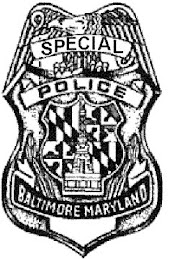 Nadirah V. Moreno
Nadirah V. Moreno Lance H. Walker
Lance H. WalkerPolice arrest, charge 2 in October homicide
December 18, 2007
December 18, 2007
Baltimore police said yesterday that they arrested a man and his girlfriend and charged them in connection with a fatal shooting in October in the northeastern part of the city.The victim, Marlon Beckford, 31, of the Bronx, N.Y., was fatally shot while sitting in a car with a woman and her 10-month-old son early Oct. 30. Beckford died at Johns Hopkins Hospital that day, police said. The woman and child were unharmed.City police said that an "extensive investigation" led detectives to two suspects. Early yesterday, members of the Baltimore region's warrant apprehension task force arrested Lance H. Walker, 28, and Nadirah V. Moreno, 31, at their home in the 9800 block of Redwing Drive in Perry Hall.Both were charged with first- and second-degree murder, police said. Police declined to discuss a possible motive in the killing.According to court records, Walker has four convictions for drug possession with intent to distribute, one in 1998, another in 1999, and two in 2002. He also has an illegal-handgun conviction from 1998, court records show.The steepest sentence Walker received in any of his convictions came in October 2001 in Baltimore Circuit Court. He pleaded guilty to drug possession with intent to distribute and received a 12-year sentence, with seven years suspended, followed by three years of probation.
[Gus G. Sentementes
Copyright © 2007, The Baltimore Sun



























































